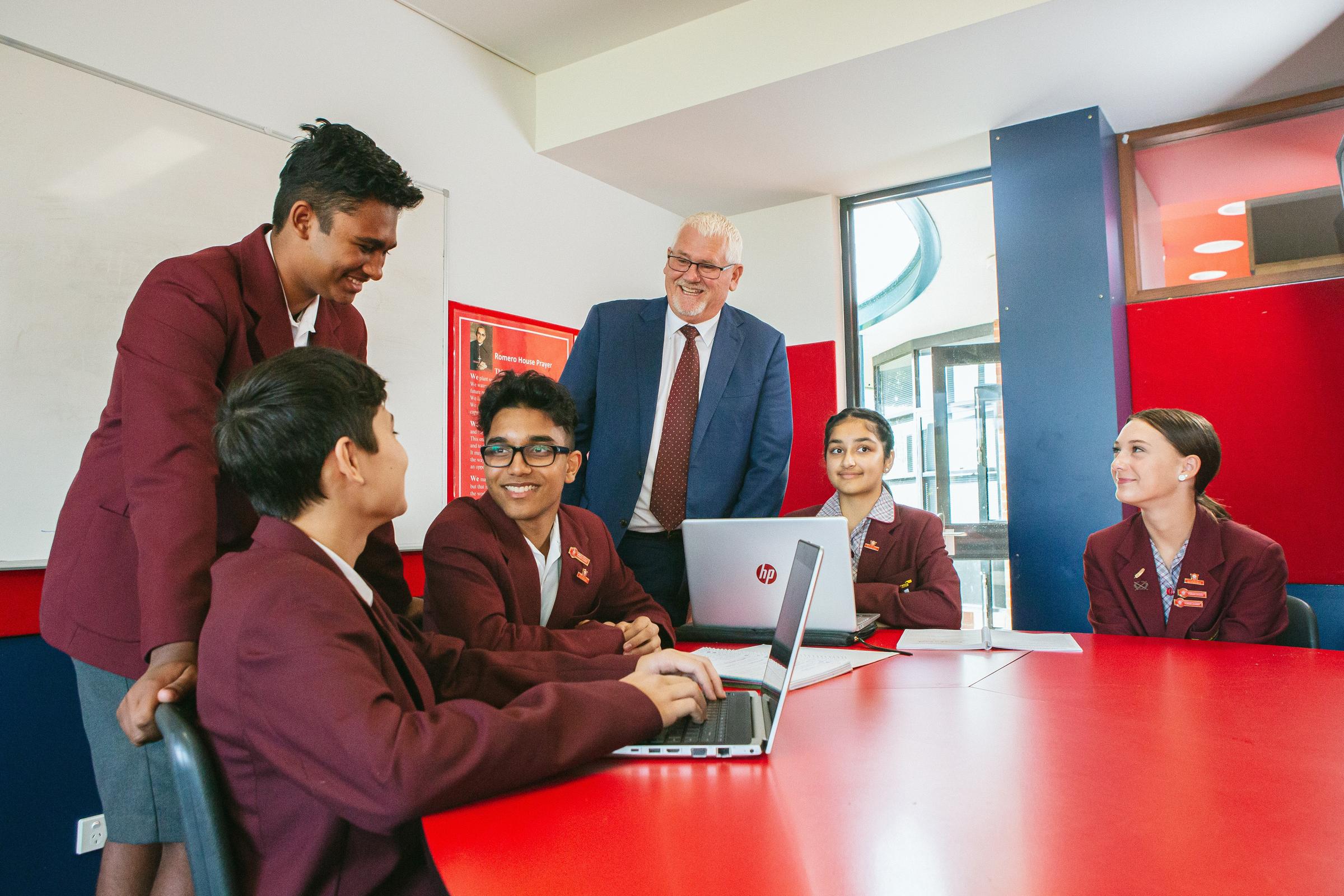Learning & Teaching News

From the Deputy Principal – Learning & Teaching
One of the unexpected joys of my role as Deputy Principal – Learning & Teaching is occasionally stepping back into the classroom to fill a gap in the timetable. While this can be a little daunting at times, it also reminds me of the thrill of teaching something new – even after 34 years in education. It’s a powerful reminder that all of us, teachers and students alike, are called to be lifelong learners.
This semester I have had the pleasure of teaching Year 8 students at the Clyde North Campus in History and Civics & Citizenship. I have been struck by the growing awareness among our young people of how important this subject is. As a Mathematics and Science teacher by background, I have always championed the role of these disciplines in shaping the future – through innovation, technology, and advances in health and medicine. Yet, it has been inspiring to witness our students discover that understanding democracy, leadership, and civic responsibility is just as essential to building a better world.
At first, some of the students were sceptical about the value of studying Civics – until we discussed real-world issues such as the proposed social media ban for those under 16. Suddenly, the subject came alive. They began to see that the laws which govern us, and the type of society we create, directly affect their lives. They realised that they must have a voice and a role in shaping the future of our democracy.
In one lesson, I shared with them a modified article by former Deputy Prime Minister John Anderson, titled “The Western democratic world is at a civilisational moment.” Anderson argues that democracies across the world are showing signs of strain. In 2024, global freedom declined for the nineteenth consecutive year, and nearly half of the world’s population now lives under authoritarian rule. Even in prosperous nations, people are losing trust – not only in their governments but in one another.
He suggests that part of the problem lies in a growing self-interest and short-term mindset. Too many nations spend beyond their means and fail to consider the impact on future generations. We are quick to focus on what divides us rather than what unites us. His message is a timely one:
Democracy depends on trust, respect, and responsibility.
Freedom is not automatic – it must be protected and understood.
Australians must know and value their national story, including both its achievements and its failings.
Civility and character matter in both leadership and everyday life.
Each generation must care for and renew the principles of democracy.
At St Peter’s College, we take these ideas seriously. At the entrance to each campus, you’ll find an expression of our democratic principles – a visible reminder of the values that underpin our community. Through our commitment to Child Safety Standard 3, we also ensure that our students are empowered to understand their rights, participate in decisions that affect them, and know that their voices are heard and respected.
Reflecting on recent school activities, I am proud of the many ways we bring these principles to life. The appointment of our 2026 student leaders and the work of our Student Representative Council provide important opportunities for student voice and participation. The winning houses at both campuses recently enjoyed excursions to celebrate their contribution to house spirit – recognising not only excellence, but also engagement and participation. Our school leaders have also taken part in diocesan-led professional learning exploring how to weave respectful relationships and inclusion into our curriculum.
Each of these experiences helps our young people find their voice and use it with integrity. If we are to nurture citizens who will strengthen the fabric of our democracy – people who value equality, freedom, inclusion, compassion, and responsibility – then I am confident that St Peter’s College is preparing them well for that task.
Mr David Hansen
Deputy Principal – Learning & Teaching
